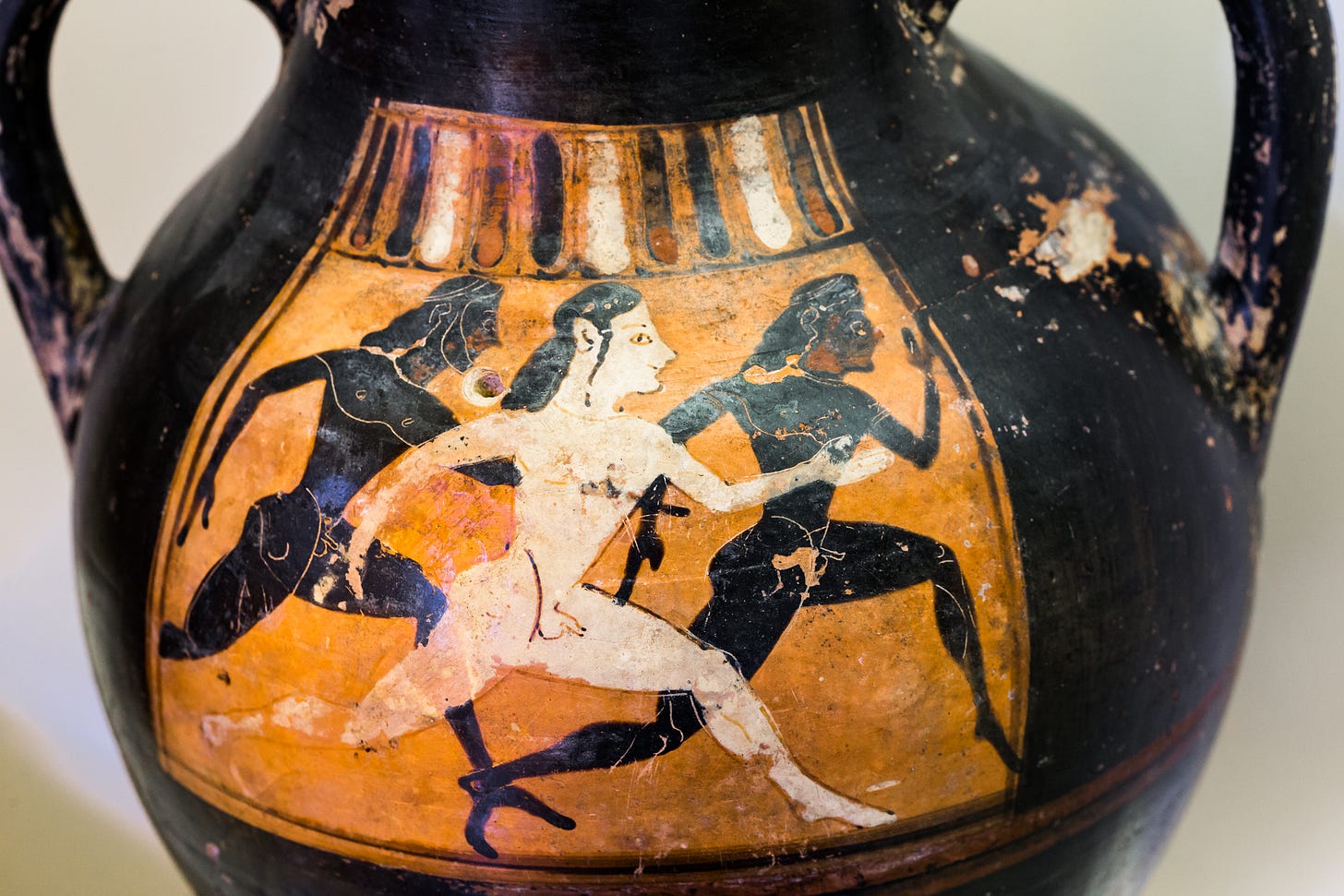
To an Athlete Dying Young
by A.E. Housman
The time you won your town the race We chaired you through the market-place; Man and boy stood cheering by, And home we brought you shoulder-high. Today, the road all runners come, Shoulder-high we bring you home, And set you at your threshold down, Townsman of a stiller town. Smart lad, to slip betimes away From fields where glory does not stay, And early though the laurel grows It withers quicker than the rose. Eyes the shady night has shut Cannot see the record cut, And silence sounds no worse than cheers After earth has stopped the ears. Now you will not swell the rout Of lads that wore their honours out, Runners whom renown outran And the name died before the man. So set, before its echoes fade, The fleet foot on the sill of shade, And hold to the low lintel up The still-defended challenge-cup. And round that early-laurelled head Will flock to gaze the …
Keep reading with a 7-day free trial
Subscribe to Poems Ancient and Modern to keep reading this post and get 7 days of free access to the full post archives.



